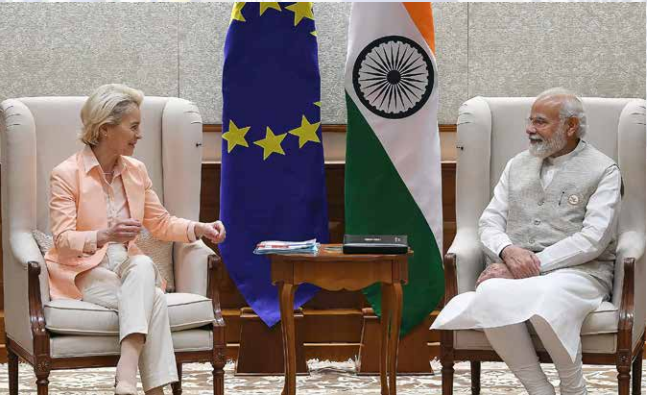A huge jump in duty-free garment imports from Bangladesh under the free trade agreement has put the domestic industry in a fix. This comes amidst slowing domestic demand and banks curtailing credit to 80 per cent of MSMEs (micro, small and medium enterprises) in the sector.
Import of garments from Bangladesh was up 82 per cent to $365 million last fiscal. It has been growing steadily at a CAGR (compounded annual growth rate) of 52 per cent and is expected to touch $3.6 billion by 2024-25. This will render about 10 lakh people jobless with most of the small garment industry shutting shop.
Bangladesh, which has signed an FTA with both India and China, has been sourcing fabric duty-free from China and exporting garments to India, thus providing a back-door entry for Chinese fabrics into the country.
Ironically, export of garments from India to Bangladesh attract a duty of 125 per cent, said Rahul Mehta, President, Clothing Manufacturers Association of India, at an event to announce the launch of the 69th National Garment Fair between July 15 and 18 in Mumbai.
The government should ensure that Bangladesh sources a part of its fabrics requirement from India as putting a cap on their export looks difficult, he said.
The association expects business transactions worth ₹800 crore with the participation of 1,000 brands, 899 stores and 45,000 retailers in the fair.
Premal Udani, former Chairman, Apparel Export Promotion Council, said Bangladesh’s garment export was at $3 billion in 2005 and India’s was at $5 billion, but today their exports have touched $36 billion while India is struggling at $16.5 billion.
Vietnam, which was not even counted among the top exporters then, has recorded garment export of $24 billion last year, he said.
Instead of announcing piecemeal policy measures, he said the government should come out with stated policy for the next five years to boost exports. This will help manufacturers plan their expansion and achieve scale, he said.
For the first time ever, garment exports had fallen by four per cent to $16.1 billion last fiscal, against $16.7 billion logged in 2017-18, Udani said. However, exports have revived partially in the last two months with the government’s export incentive schemes.
On the Union Budget, Mehta said the Finance Minister has hinted at special sourcing concessions for foreign-owned single- and multibrand but details are not yet out.
It will be a big blow if the government eases the current mandatory 30 per cent domestic sourcing norm, he said.
A Bloomberg report adds: Bangladesh which is the world’s second-largest garment exporter, has seen the value of its overseas sales rise to a record $40.5 billion in the year ended June 30, coinciding with US President Trump boosting tariffs on $200 billion of Chinese goods to 25 per cent from 10 per cent. The US-China trade war has seen American and Chinese orders for more than half of the 1,981 tariffed products so far being rerouted to other countries, including Vietnam and Malaysia.
For Bangladesh, which aims to double total exports to $72 billion by 2024, snaring part of the $41 billion of the clothing business that goes to China will provide a fillip to an economy that the Asian Development Bank forecasts will expand a record 8 per cent for the next two years.






